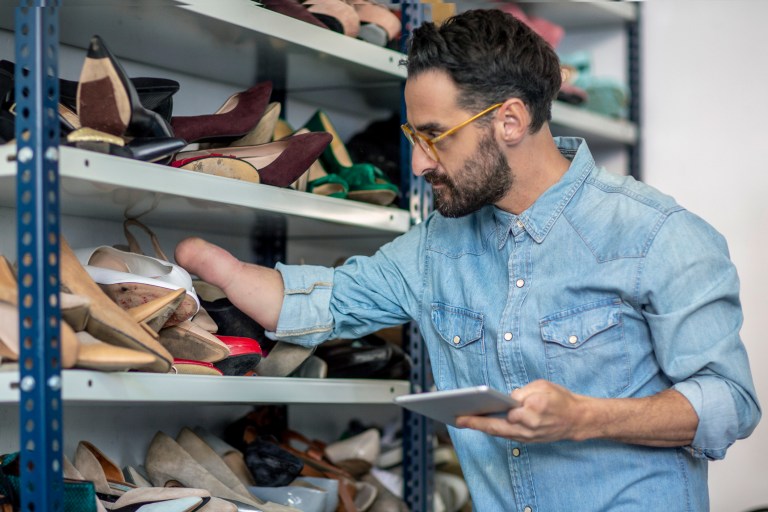
People with disabilities are more likely to be self-employed than people without disabilities, yet very few entrepreneurship centers specialize in guiding people with disabilities toward starting a business, said Viscardi Center Chief Program Officer Colleen Crispino.
So in October, the Viscardi Center will launch its very own effort called the National Center for Disability Entrepreneurship.
Designed for adults of all ages with any type of disability, the center will offer a 14-to-16-week program to guide participants toward creating a business plan and then offer mentorship and potential seed funding for a launch, Crispino said.
For a population that often faces barriers to traditional employment, self-employment provides an important alternative, said Kim Brussell, vice president of marketing and public affairs at the Viscardi Center in Albertson.
“We’re creating entrepreneurs out of people that may not have ever thought they could be an entrepreneur or business owner,” she said.
The program is accepting applications for its first cohort, which Crispino said would hopefully have about 10 participants.
The Viscardi Center has spent about 18 months putting the program together. It has partnered with Farmingdale State College’s Small Business Development Center, which will offer training and mentorship for participants.
The curriculum will include two sessions per week that will be up to 90 minutes, Crispino said.
“We have a very extensive history of supporting people with disabilities in employment so this is sort of a very natural branching out for us to now support them in self-employment,” she said.
When putting together the center, Crispino attended a conference called “Entrepreneurship for All” where people with disabilities were never even mentioned, she said.
Entrepreneurship centers often specialize in working with certain demographic groups but people with disabilities are rarely one of them, Crispino said.
According to 2018 U.S. Department of Labor statistics, 10.2 percent of employed people with disabilities are self-employed versus 6.1 percent for the nondisabled population.
“To be able to provide a linkage that will help people with disabilities take advantage of things people without disabilities have been taking advantage of for years will be exciting,” Crispino said.
Friday marks the 29th anniversary of the Americans with Disabilities Act, Viscardi Center President and CEO John D. Kemp said in a statement.
“Despite the progress that has been made in many areas, employment of people with disabilities continues to be staggeringly, and quite frankly unacceptably, low,” he said. “This under- and un-employment perpetuates us living at, or below, the poverty level. Self-employment offers an opportunity for us to utilize our talent and create a path to financial independence.”






